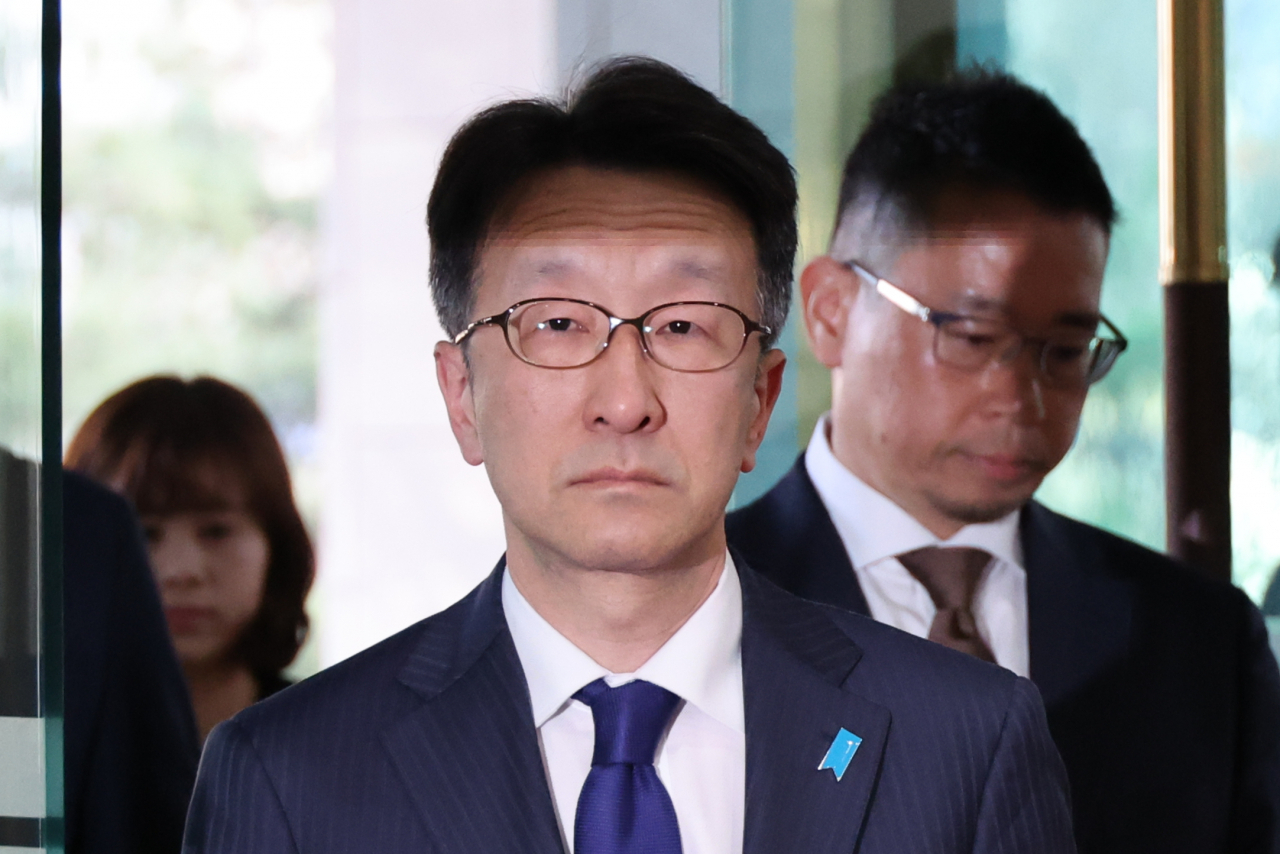Japan’s textbook revisions threaten thaw in ties
By Choi Si-youngPublished : March 28, 2023 - 18:30

South Korea on Tuesday called in Japan’s deputy chief of mission in Seoul over textbook revisions stating that Japan did not force Koreans to provide labor during its 1910-45 occupation of the Korean Peninsula and that the Dokdo islets controlled by Seoul belong to Tokyo.
The Foreign Ministry in Seoul summoned Naoki Kumagai, the deputy chief at the Japanese Embassy, and formally lodged a complaint about the textbook changes affecting students entering elementary school in April 2024, saying they water down Tokyo’s wartime rights abuses and endorse its claims over Dokdo, the islets in the seas between the countries.
“Japan has to face up to its history and be more responsible for the way it educates the younger generation about its past,” a spokesperson for the Foreign Ministry in Seoul said in a statement. “Japan should be able to deliver on the promise to uphold its past apology,” he noted, referring to the Japanese foreign minister’s previous remarks made in response to a March 6 decision.
The announcement -- where Korea said Korean victims will receive compensation from Korean companies as the Japanese firms held liable for damages by a 2018 Korean court ruling refuse to recognize it -- is believed to have settled the feud, with many Koreans expecting Japan to at least acknowledge the rights abuses.
Immediately after the announcement, Japanese Foreign Minister Yoshimasa Hayashi reaffirmed that his government would uphold the formal apology for its colonial rule, which was made in 1998, when former Japanese Prime Minister Keizo Obuchi and Korean President Kim Dae-jung shook hands on a new Korea-Japan partnership.
But such efforts to live up to the “genuine reflection on its wartime past and sincere apology for it” -- atonement made in the 1998 declaration -- have fallen short of expectations, largely because the Japanese firms mandated to pay the damages are still slow to contribute to a joint fund with Korea meant to start mending the frayed ties.
The fund is a way for the Japanese companies refusing to directly pay the victims to make amends indirectly, according to the Korean government.
“We have taken every initiative to move past the single greatest hurdle,” a senior Foreign Ministry official in Seoul said, stressing such outreach aims to cement a “future-oriented Seoul-Tokyo relationship.” The official added, “We will continue to communicate with Japan over the issues -- the wartime labor and Dokdo. They still need closure.”







![[Graphic News] More Koreans say they plan long-distance trips this year](http://res.heraldm.com/phpwas/restmb_idxmake.php?idx=644&simg=/content/image/2024/04/17/20240417050828_0.gif&u=)
![[KH Explains] Hyundai's full hybrid edge to pay off amid slow transition to pure EVs](http://res.heraldm.com/phpwas/restmb_idxmake.php?idx=644&simg=/content/image/2024/04/18/20240418050645_0.jpg&u=20240419100350)






![[From the Scene] Monks, Buddhists hail return of remains of Buddhas](http://res.heraldm.com/phpwas/restmb_idxmake.php?idx=652&simg=/content/image/2024/04/19/20240419050617_0.jpg&u=20240419175937)

![[KH Explains] Hyundai's full hybrid edge to pay off amid slow transition to pure EVs](http://res.heraldm.com/phpwas/restmb_idxmake.php?idx=652&simg=/content/image/2024/04/18/20240418050645_0.jpg&u=20240419100350)

![[Today’s K-pop] Illit drops debut single remix](http://res.heraldm.com/phpwas/restmb_idxmake.php?idx=642&simg=/content/image/2024/04/19/20240419050612_0.jpg&u=)